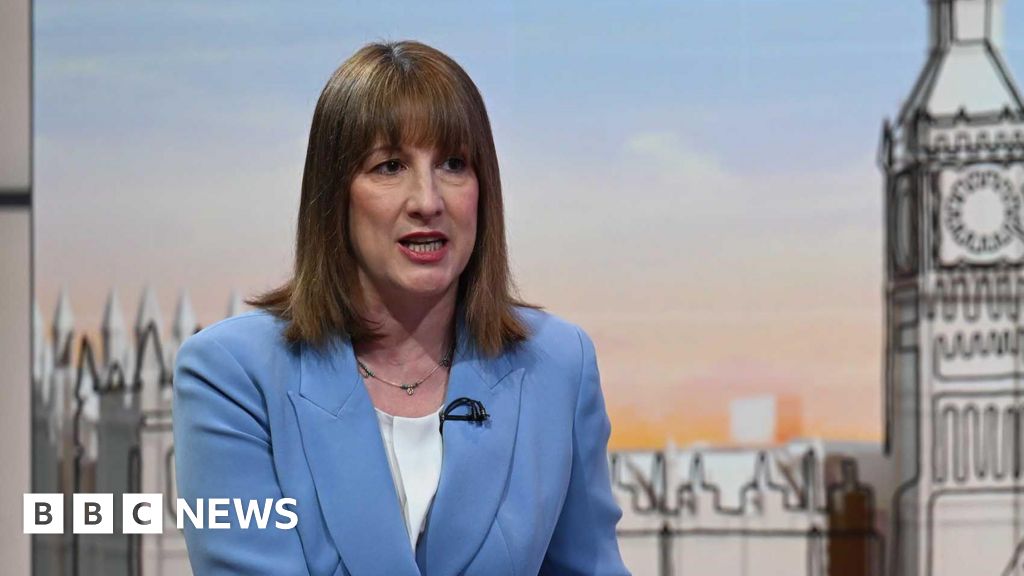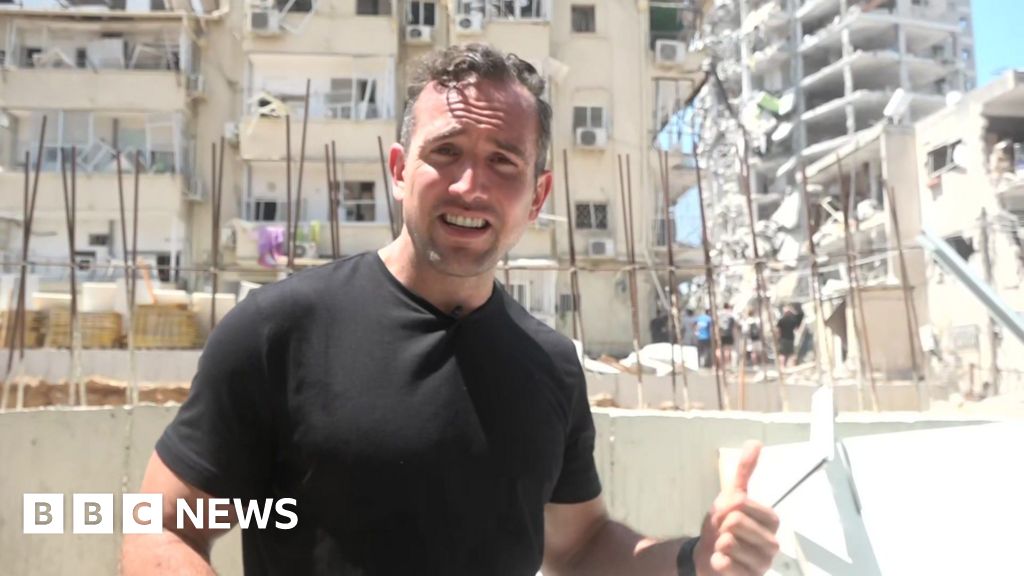Diplomacy With Iran Is Damaged, Not Dead


The push to do a deal on the country’s nuclear program could be revived, even after the Israeli strikes scuppered the latest round of talks. If war is diplomacy by other means, diplomacy is never finished. While Israel and Iran are in the midst of what could be an extended war that could spread, the possibility of renewed talks to deal with Iran’s expanding nuclear program should not be discounted. Negotiations are on hold while the war continues, and the future of diplomacy is far from clear. Iran will feel compelled to respond to Israel, and the Israeli campaign could last for days or weeks. For now Washington does not appear to be doing anything to press both sides to stop the violence and start talking again. But the Iranians say they still want a deal, as does President Trump. The shape of future talks will inevitably depend on when and how the fighting stops. “We are prepared for any agreement aimed at ensuring Iran does not pursue nuclear weapons,” the Iranian foreign minister, Abbas Araghchi, told foreign diplomats in Tehran on Sunday. But his country would not accept any deal that “deprives Iran of its nuclear rights,” he added, including the right to enrich uranium, albeit at low levels that can be used for civilian purposes. Mr. Araghchi said Israel did not attack to pre-empt Iran’s race toward a bomb, which Iran denies trying to develop, but to derail negotiations on a deal that Mr. Netanyahu opposes. The attacks are “an attempt to undermine diplomacy and derail negotiations,” he continued, a view shared by various Western analysts. “It is entirely clear that the Israeli regime does not want any agreement on the nuclear issue,” he said. “It does not want negotiations and does not seek diplomacy.” Prime Minister Benjamin Netanyahu of Israel has argued that the attack on Iran was to stop Tehran from developing a nuclear weapon, even as a sixth round of talks to prevent that very outcome was scheduled between the United States and Iran. While Israel argues that it had to strike now to prevent an Iranian race to bomb, American and European judgments were that Iran was still many months away from building a bomb and has not yet decided to do so. Mr. Netanyahu believes that a deal that would allow Iran to enrich uranium would mean a nuclear-armed Iran in the future, and he has been bent on preventing that outcome. He has apparently judged that a U.S.-Iran deal would have kept him from his goal of destroying Iran’s nuclear program, and, perhaps, he hopes, bringing about the fall of the Islamic Republic. But Israel is considered highly unlikely to meet the goal of destroying Iran’s nuclear program without active American involvement, which Mr. Trump has so far resisted. The president continues to say that he wants negotiations to succeed. He seems to believe that the attack will bring Iran back to the table in a weaker and more conciliatory position, ready to accept his latest demand that it halt all enrichment of uranium. But Iran insists that it has the right to enrich for civilian uses under the Nuclear Nonproliferation Treaty. Mr. Trump clearly sees the war as a form of diplomacy. On Friday, he wrote: “Two months ago I gave Iran a 60-day ultimatum to ‘make a deal.’ They should have done it! Today is day 61. I told them what to do, but they just couldn’t get there. Now they have, perhaps, a second chance!” Early on Sunday, Mr. Trump warned Iran against attacking American forces in a message on Truth Social. “However, we can easily get a deal done between Iran and Israel, and end this bloody conflict,” he said. Whether Israel would accept such a deal, if Iran is allowed to enrich at all, is an open question. At the same time, Mr. Trump, who has said he knew about the Israeli attack beforehand, has done nothing in public to restrain the Israelis. When Washington announced last week that the talks would continue on Sunday, it is not clear whether it knew when Israel would attack, but the Iranians are convinced that Washington was complicit in trying to fool them into believing that any Israeli attack would come afterward. A quick deal now that would give up enrichment would be seen as a surrender, said Vali Nasr, a professor at the Johns Hopkins School of Advanced International Studies who served in the State Department during the Obama administration. That could make the Iranian government more vulnerable at home. “They won’t give up enrichment, not this easily,” he said. “They’re not going to surrender.” For now negotiations with Iran are on hold, said Robert Malley, a former U.S. official who negotiated with Iran on the nuclear issue under President Joseph R. Biden Jr. But their future shape and timing will depend on the length of the Israeli attack and what it achieves. “When Iran feels comfortable to come back to the table with the United States, which it believes is deeply complicit with the attack, and in what position Iran comes back depends on how significantly Israel has degraded its nuclear program,” he said. For now, Washington is backing the Israeli operations, but “at some point, better sooner than later, they will try to exercise some restraint” to limit the conflict, Mr. Malley said. Mr. Trump still seems eager to get a deal and avoid being dragged into the war. Karin von Hippel, a former State Department official and former director of RUSI, the London-based defense research group, agrees. “We’ll get back to the table eventually but at what cost to Israel and the region?” she said. “The challenge is going to be that the Iranians want a face-saving way to get back to the table,” while Mr. Trump prefers “to back people to the edge and get them to capitulate.” Unless the Iranian government collapses — or Israel tries to kill the political and clerical leadership of Iran, as it did with Hezbollah — any deal is likely to be very similar to the original 2015 nuclear pact negotiated under President Barack Obama, and which Mr. Trump, in his first term, abandoned in 2018. “It will probably be a very similar deal as the one with Obama, but Trump will want to put his own spin on it,” Ms. von Hippel said. “Trump can declare victory no matter what. And if the deal has enough safeguards on Iran he can get away with it,” she said, even if some Republicans and Israel criticize it for not ending Iran’s enrichment altogether. Mr. Trump has miscalculated in thinking Israel’s attack would force Iran to accept a deal based on zero enrichment, said Rajan Menon, professor emeritus of international relations at the City College of New York, in an email post and an article in The New Statesman. Mr. Trump is unlikely to miscalculate again and join Israel’s war, but “this much is certain: Netanyahu wanted to scuttle the U.S.-Iran negotiation, and he has succeeded,” Mr. Menon said, at least for now. But Iran clearly wants to come back to negotiations, since a deal is still the best protection it has from continuing or subsequent Israeli attacks on a country that has lost most of its own air defenses and has limited ways of striking Israeli territory. Even if the government is not about to fall, it is weakened and at profound risk, for the first time since Iraq and Saddam Hussein invaded in 1980, said Suzanne Maloney, an Iran expert and director of the foreign policy program at the Brookings Institution. A pathway to a deal is unclear for now, but the Iranians must still consider diplomacy as “the best way to extricate themselves from what is an existential crisis,” she said. There will inevitably be a sharp debate inside the Iranian regime about whether to accept a diplomatic solution out of weakness or to continue to try to strike back and even race for a nuclear weapon, Mr. Malley said. The alternatives, of course, include widening the war by damaging regional energy assets of Saudi Arabia and the Persian Gulf, closing the Strait of Hormuz to shipping, assaulting institutions and even synagogues abroad or attacking American troops and interests in the region. But there is probably no surer way of bringing the United States into the war, which Mr. Netanyahu deeply desires. For their part, the Europeans who were instrumental in the 2015 nuclear deal, and who have been sidelined by Mr. Trump, say they are ready to hold talks with Iran on its nuclear program. “I hope that’s still possible,” the German foreign minister, Johann Wadephul, said late Saturday in Oman. “Germany, together with France and Britain, are ready,” he told the German broadcaster ARD. Iran must never have a nuclear weapon, he said, but other than wanting the violence to end, he indicated no European move to pressure either side to desist. “There’s a shared expectation that within the next week, a serious attempt must be made on both sides to interrupt the spiral of violence,” he said.
What's Your Reaction?
 Like
0
Like
0
 Dislike
0
Dislike
0
 Love
0
Love
0
 Funny
0
Funny
0
 Angry
0
Angry
0
 Sad
0
Sad
0
 Wow
0
Wow
0










